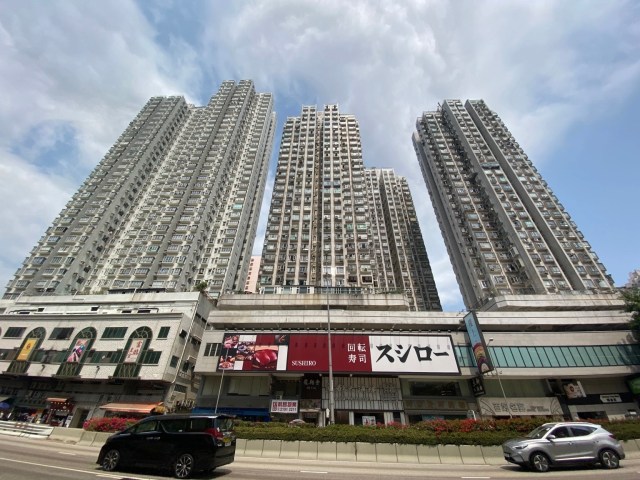
A taste of how things used to be.
Japan’s conveyor belt sushi chain Sushiro has been undergoing rapid international expansion in recent years. At the current pace it is expected that the number of restaurants outside Japan will outnumber the ones inside the country by the end of this year, making it a global chain not unlike McDonald’s or KFC.
This can be an interesting experience for Japanese people traveling abroad who can get a taste of home along with different regional flourishes. That’s just what our reporter Ikuna Kamezawa did on her trip to Hong Kong recently and found one location in the Wong Tai Sin area to be the best Sushiro in her modest opinion.
That might sound strange coming from a Japanese person, but despite their expansion the major chain has seen better times in Japan. The recent sushi terrorism scandals have only been the latest in a number of other off-putting moves surrounding Sushiro, including price hikes and dubious advertising practices. As a result, the overall experience has suffered and it’s often rare to find a full Sushiro.
In Hong Kong on the other hand, the business was booming and the tables were consistently full. The scene reminded Ikuna of Sushiro in Japan about two years earlier, before the pandemic and a whole slew of other problems befell them.
Even more nostalgic was the fact that all the sushi dishes were floating around the room on a conveyor belt rather than being relegated to the express lane that sends orders directly to table. Express lanes have become the norm in Japan ever since the licking terror attack earlier this year, and in Hong Kong Ikuna was reminded of why she can’t have nice things back home.
This Sushiro has practically the exact same touchscreen check-in service as Japan, making it easy to get a table. When she went, there were just under 70 other groups waiting ahead of her, so it took about an hour and 15 minutes before she could get a table.
Overall, the entire restaurant layout is strikingly similar to the ones in Japan but one very noticeable difference was the addition of little dishes to put soy sauce in. Although it’s a seemingly obvious feature for a sushi restaurant, the Sushiro locations Ikuna’s been to in Japan never had them. She always figured it was a cost-cutting move…but why can they do it here?
In order to make the most of her dining experience, Ikuna texted back to SoraNews24’s leading Sushiro expert Seiji Nakazawa for menu recommendations. While she waited for a reply, she grabbed her go-to favorites of squid off the line and an order of miso soup.
The miso soup for HK$17 (238 yen [US$1.79]) had much more of an emphasis on sweet tastes than umami, which seems to be a common feature of miso soups served at a lot of places outside of Japan.
This Sushiro was also having a Red Shari Festival from 3 March. Red shari is sushi rice covered in a slightly different kind of vinegar than the more common varieties. Ikuna actually liked red shari better so it was good timing.
▼ Squid with red shari
Suddenly she got a ping from Seiji, who texted her a few menu items that aren’t offered at Sushiro in Japan.
The one he recommended most was the Demon Shrimp for $22 (366 yen [$2.75]).
It certainly looked intense, but under the hood, the meat was delightfully crisp and sweet like a nice botan shrimp. Seiji told Ikuna that although Sushiro in Japan didn’t have Demon Shrimp, it could be found at their sister chain, Kaitenzushi Misaki.
Next, Ikuna was recommended to try the Soft-shell Crab Nigiri for $27 (450 yen [$3.38]). It had a stunning appearance but the meat was tender and delicious. The huge pile of mayonnaise on top was a little much though.
Then there was the Seafood Pickled Shiso Wrap for $12 (200 yen [$1.50]). Sushiro in Japan has a similar item with a large amount of pickled seafood with Korean yukhoe-style seasoning, but this one uses a leaf of shiso (perilla) instead of seaweed and also throws some ikura salmon roe on top for good measure.
Finally, Seiji told Ikuna to check out the Flower’s Love sushi for $17 (238 yen [$1.79]), if for no other reason than the delightful name.
There was something about the subtle touch of naming it “Flower’s Love” that was really nice considering a lot of people would probably have just gone with the obvious “Flower of Love.” And just as impactful as the name was the way Flower’s Love looked.
It was very nice tasting too, but Ikuna felt they again went overboard with the mayonnaise. This sushi was so sweet that it made her chest ache, which come to think of it, is a lot like love.
Seiji also had other recommendations, but this Sushiro in Hong Kong is so busy that diners are strictly limited to 60 minutes per visit. Ikuna was politely notified of this via her table’s tablet in Japanese.
In total she ate seven dishes of sushi which cost $144 (2,398 yen [$18.04]). That’s a fair bit more than a visit to Sushiro in Japan, but still way cheaper than a lot of restaurants in Hong Kong. The experience was really top notch as well and made her long for the heyday of this chain in Japan.
As she left, she could easily declare this the best Sushiro in the world. It’s a provisional title though, since she has yet to try most other countries’ Sushiro locations. Still, this one will certainly be hard to beat.
Photos © SoraNews24
● Want to hear about SoraNews24’s latest articles as soon as they’re published? Follow us on Facebook and Twitter!

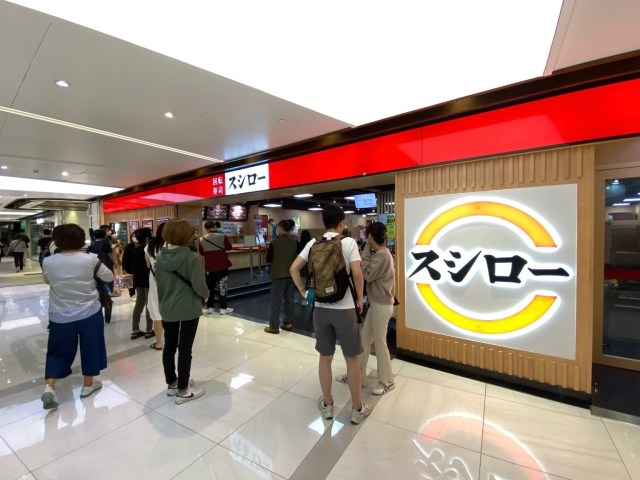
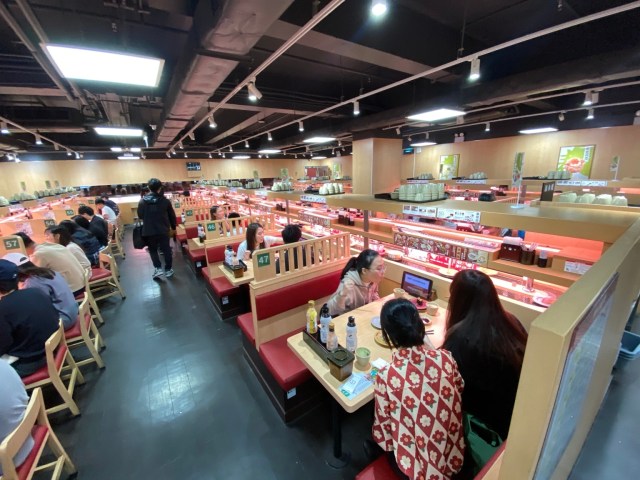
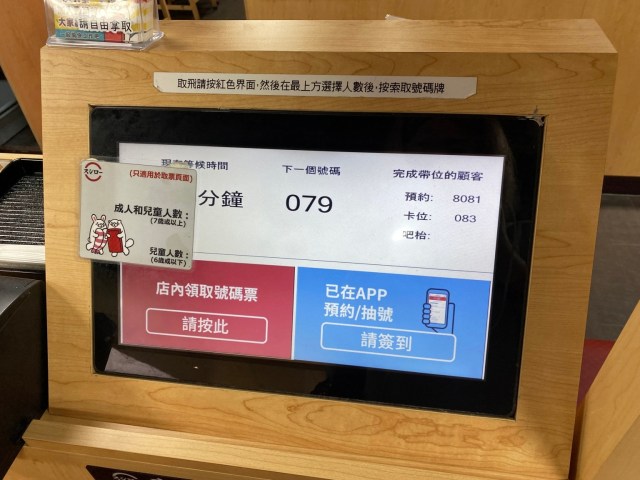
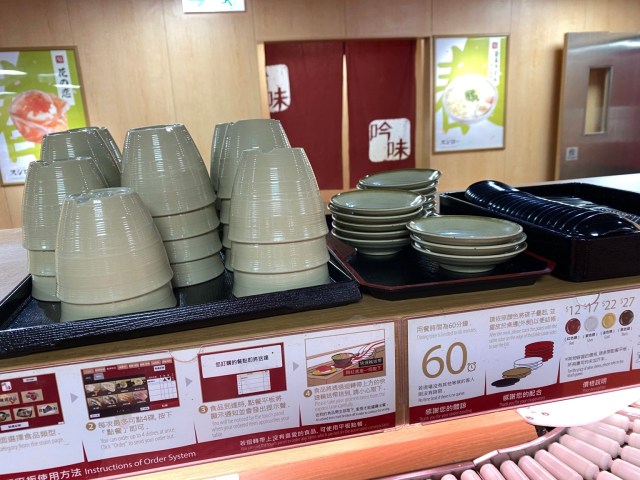
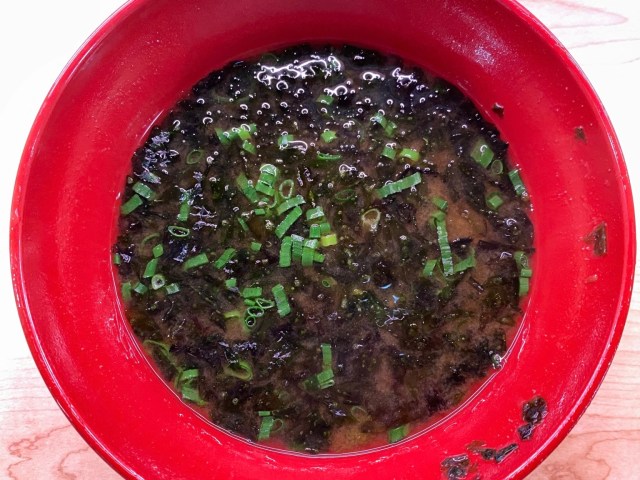
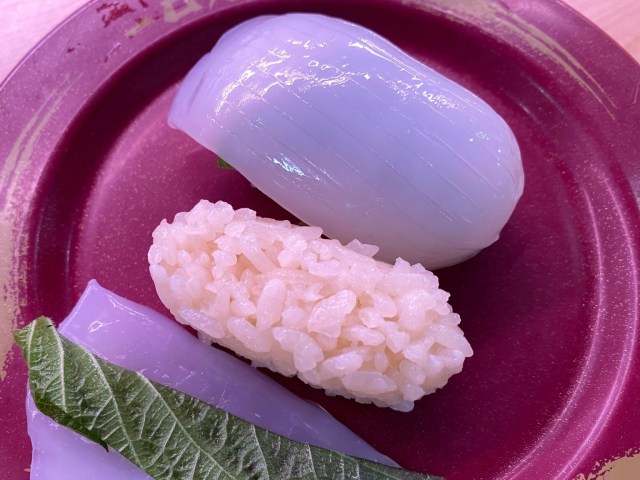

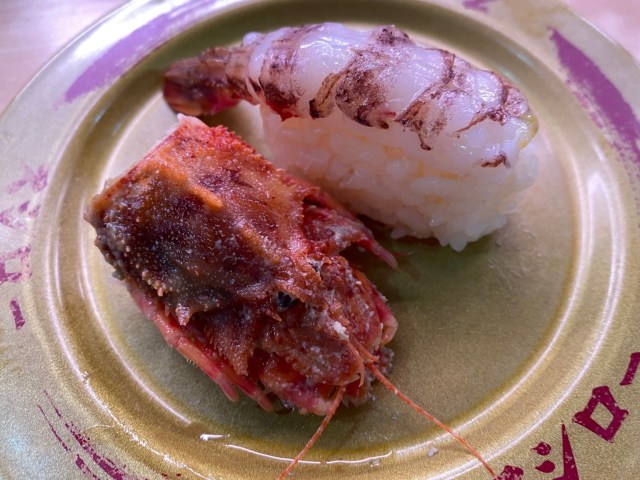
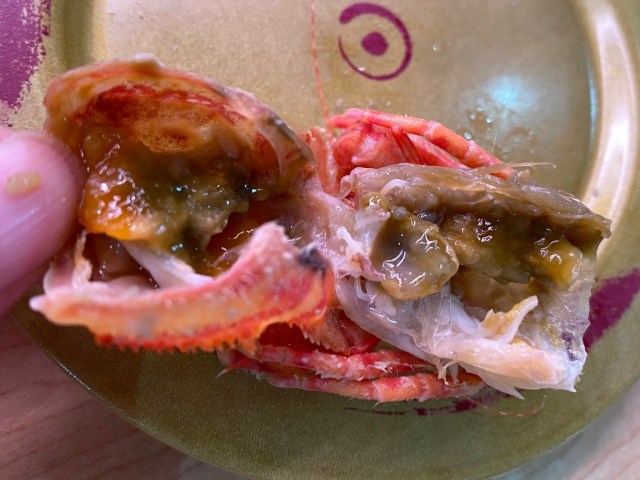
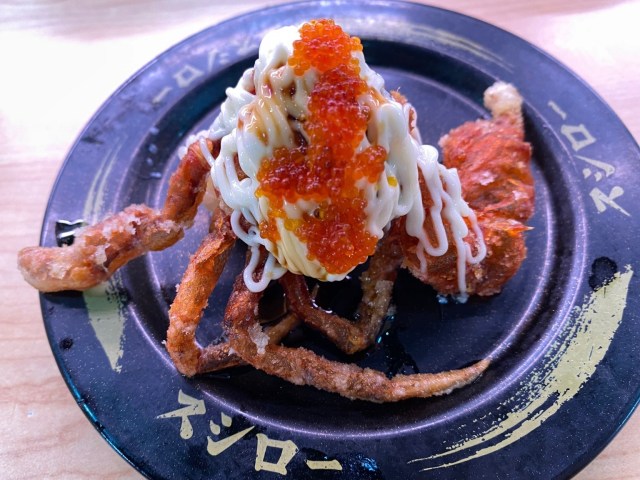
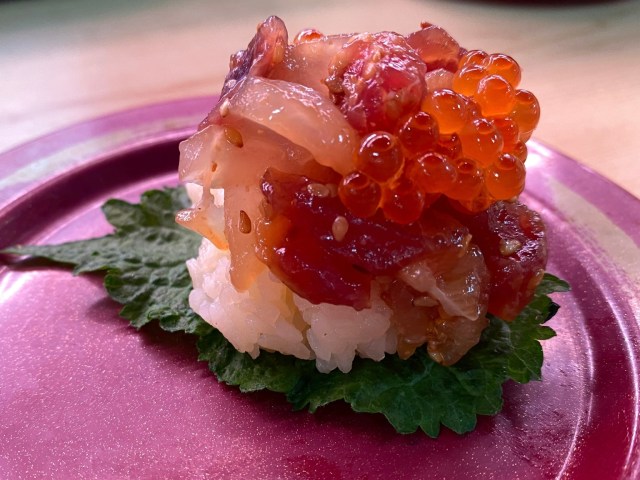
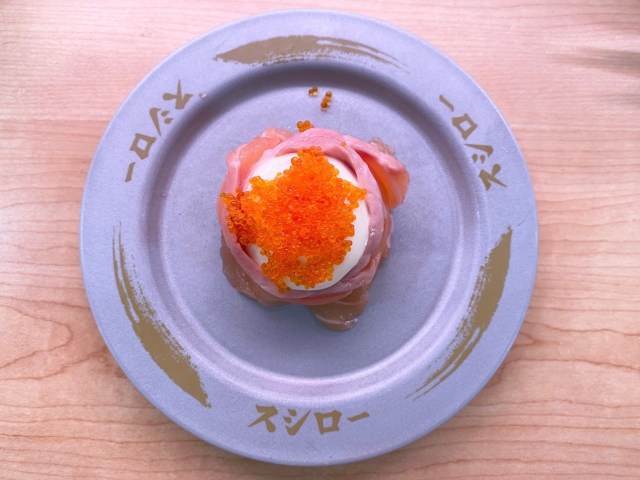
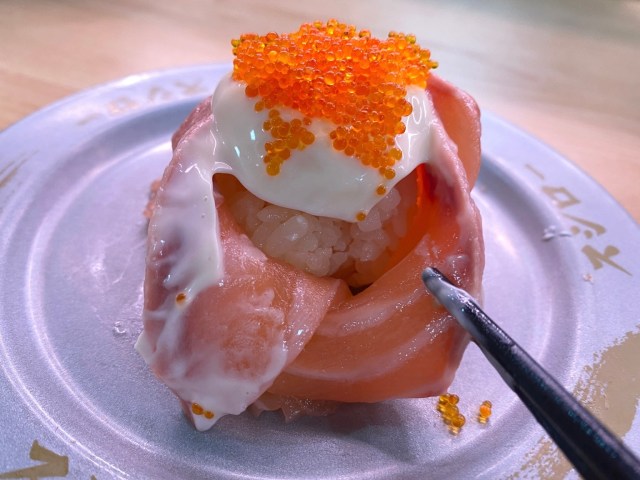
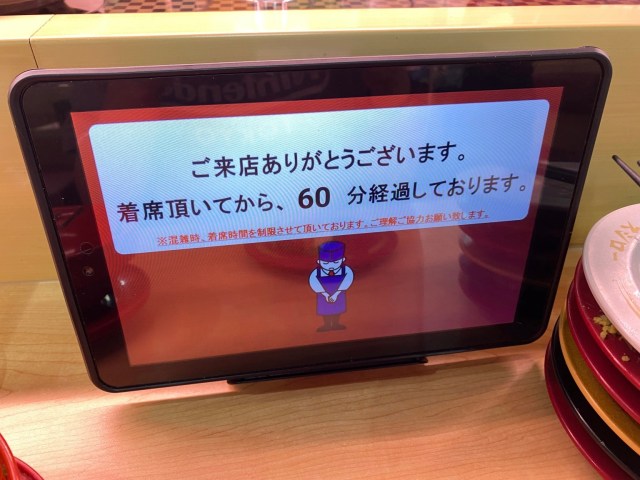
 Visiting Sushiro in Laos, but not that Sushiro…probably
Visiting Sushiro in Laos, but not that Sushiro…probably Our writer tries out Hong Kong’s ‘killer sushi’, lives to tell the tale
Our writer tries out Hong Kong’s ‘killer sushi’, lives to tell the tale Hong Kong supermarket’s new offering may take crown as “murderer of sushi”
Hong Kong supermarket’s new offering may take crown as “murderer of sushi” Waiter, there’s a SNAKE in my soup — we try Cantonese delicacy snake stew in Hong Kong
Waiter, there’s a SNAKE in my soup — we try Cantonese delicacy snake stew in Hong Kong Japan super budget dining – What’s the best way to spend 1,000 yen at sushi restaurant Sushiro?
Japan super budget dining – What’s the best way to spend 1,000 yen at sushi restaurant Sushiro? Legendary pie cafe Anna Miller’s finally returns to Tokyo after three-year absence
Legendary pie cafe Anna Miller’s finally returns to Tokyo after three-year absence Now is the time to visit one of Tokyo’s best off-the-beaten-path plum blossom gardens
Now is the time to visit one of Tokyo’s best off-the-beaten-path plum blossom gardens Naruto and Converse team up for new line of shinobi sneakers[Photos]
Naruto and Converse team up for new line of shinobi sneakers[Photos] Fives places around Japan to appreciate the plum blossoms this season
Fives places around Japan to appreciate the plum blossoms this season Foreign tourists in Japan will get free Shinkansen tickets to promote regional tourism
Foreign tourists in Japan will get free Shinkansen tickets to promote regional tourism Testing Japan’s fluffy mayonnaise pancake cooking hack【SoraKitchen】
Testing Japan’s fluffy mayonnaise pancake cooking hack【SoraKitchen】 Act of Japanese kindness touches one man’s heart, provides hope for elevator etiquette
Act of Japanese kindness touches one man’s heart, provides hope for elevator etiquette Take a trip to Japan’s Dododo Land, the most irritating place on Earth
Take a trip to Japan’s Dododo Land, the most irritating place on Earth Starbucks Japan releases new sakura goods and drinkware for cherry blossom season 2026
Starbucks Japan releases new sakura goods and drinkware for cherry blossom season 2026 Starbucks Japan unveils new sakura Frappuccino for cherry blossom season 2026
Starbucks Japan unveils new sakura Frappuccino for cherry blossom season 2026 Japan’s newest Shinkansen has no seats…or passengers [Video]
Japan’s newest Shinkansen has no seats…or passengers [Video] Foreigners accounting for over 80 percent of off-course skiers needing rescue in Japan’s Hokkaido
Foreigners accounting for over 80 percent of off-course skiers needing rescue in Japan’s Hokkaido Super-salty pizza sends six kids to the hospital in Japan, linguistics blamed
Super-salty pizza sends six kids to the hospital in Japan, linguistics blamed Can you eat lunch in Tokyo for less than 500 yen?
Can you eat lunch in Tokyo for less than 500 yen? New Family Mart cinema opens inside Japanese airport
New Family Mart cinema opens inside Japanese airport Japan releases first official sakura cherry blossom forecast for 2026
Japan releases first official sakura cherry blossom forecast for 2026 Archfiend Hello Kitty appears as Sanrio launches new team-up with Yu-Gi-Oh【Pics】
Archfiend Hello Kitty appears as Sanrio launches new team-up with Yu-Gi-Oh【Pics】 China’s don’t-go-to-Japan warning looks to be affecting tourist crowds on Miyajima
China’s don’t-go-to-Japan warning looks to be affecting tourist crowds on Miyajima Survey asks foreign tourists what bothered them in Japan, more than half gave same answer
Survey asks foreign tourists what bothered them in Japan, more than half gave same answer Japan’s human washing machines will go on sale to general public, demos to be held in Tokyo
Japan’s human washing machines will go on sale to general public, demos to be held in Tokyo Starbucks Japan releases new drinkware and goods for Valentine’s Day
Starbucks Japan releases new drinkware and goods for Valentine’s Day We deeply regret going into this tunnel on our walk in the mountains of Japan
We deeply regret going into this tunnel on our walk in the mountains of Japan Studio Ghibli releases Kodama forest spirits from Princess Mononoke to light up your home
Studio Ghibli releases Kodama forest spirits from Princess Mononoke to light up your home Major Japanese hotel chain says reservations via overseas booking sites may not be valid
Major Japanese hotel chain says reservations via overseas booking sites may not be valid Put sesame oil in your coffee? Japanese maker says it’s the best way to start your day【Taste test】
Put sesame oil in your coffee? Japanese maker says it’s the best way to start your day【Taste test】 No more using real katana for tourism activities, Japan’s National Police Agency says
No more using real katana for tourism activities, Japan’s National Police Agency says We eat 13 of the most highly recommended sushi items at Sushiro and pick the best of the best
We eat 13 of the most highly recommended sushi items at Sushiro and pick the best of the best What happens in the kitchen of a conveyor belt sushi restaurant? Let’s find out at Sushiro!
What happens in the kitchen of a conveyor belt sushi restaurant? Let’s find out at Sushiro! McDonald’s breakfast menu in Hong Kong is like nothing we’ve ever seen in Japan
McDonald’s breakfast menu in Hong Kong is like nothing we’ve ever seen in Japan We visit Hong Kong’s luminous landscape during the holiday season for an added holiday twinkle
We visit Hong Kong’s luminous landscape during the holiday season for an added holiday twinkle Extreme vacationing: How to enjoy a trip to Hong Kong in just 12 hours
Extreme vacationing: How to enjoy a trip to Hong Kong in just 12 hours Teen sushi terrorist’s Sushiro lawsuit could go up to 160 million yen
Teen sushi terrorist’s Sushiro lawsuit could go up to 160 million yen Can our pregnant reporter find fulfilment by eating only non-raw foods at Sushiro?
Can our pregnant reporter find fulfilment by eating only non-raw foods at Sushiro? Digital Sushiro Vision – Testing out the newest way to order conveyor belt sushi【Pics, video】
Digital Sushiro Vision – Testing out the newest way to order conveyor belt sushi【Pics, video】 The sushi has stopped revolving at Japan’s biggest revolving sushi restaurant chain
The sushi has stopped revolving at Japan’s biggest revolving sushi restaurant chain Take a peek inside a Hong Kong cat cafe
Take a peek inside a Hong Kong cat cafe Four things you should order at rotating sushi restaurant Sushiro if you don’t eat raw fish
Four things you should order at rotating sushi restaurant Sushiro if you don’t eat raw fish The Sushiro of the future to open at the Osaka-Kansai Expo 2025
The Sushiro of the future to open at the Osaka-Kansai Expo 2025 6 things you should try at Sushiro right now, according to staff who work there
6 things you should try at Sushiro right now, according to staff who work there Sushi will finally start revolving again at Japan’s largest revolving sushi restaurant chain
Sushi will finally start revolving again at Japan’s largest revolving sushi restaurant chain Will virtual plate procession become the new normal for conveyor belt sushi restaurants in Japan?
Will virtual plate procession become the new normal for conveyor belt sushi restaurants in Japan? One of Japan’s best revolving sushi chains lets you check online if your favorite fish is in stock
One of Japan’s best revolving sushi chains lets you check online if your favorite fish is in stock